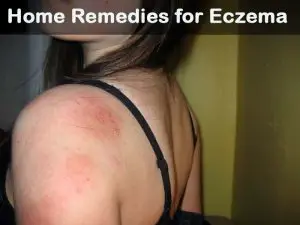 Almost 9 – 30% of American population suffer from Eczema which is a distressing and uncomfortable skin condition. It usually happens when the skin produces less amount of oil than it usually does. This makes our skin to lose its ability to retain moisture which creates gaps between the skin cells. The bacteria grows in these gaps which leads to swelling, redness and constant itching.
Almost 9 – 30% of American population suffer from Eczema which is a distressing and uncomfortable skin condition. It usually happens when the skin produces less amount of oil than it usually does. This makes our skin to lose its ability to retain moisture which creates gaps between the skin cells. The bacteria grows in these gaps which leads to swelling, redness and constant itching.
Food allergy, stress, irritants and hormonal balance are few reasons that can trigger eczema. Unfortunately eczema cannot be cured completely. However, eczema can be controlled to a maximum extent by retaining the moisture and improving the strength of the skin. This can be achieved by natural solutions like vitamin E, aloe vera, cucumber, coconut oil and many other ingredients. For more detailed explanation, read on…
Home Remedies for Treating Eczema:
There are various natural home remedies for treating eczema at home. We have assorted them below for your convenience. All you have to do is choose one among them and try it regularly to get rid of eczema symptoms.
1. Vitamin E
Vitamin E protects the body from free radicals & other damaging bi-products of body metabolism. It helps in regulating vitamin A (fat soluble vitamin which helps for normal functioning of immune system).
- Break open a vitamin E capsule which contains D-alpha tocopherol and mixed natural tocopherols.
- Apply the contents of the capsule directly on the affected areas.
- Leave it on to dry completely.
- Repeat the process 2 times in a day to treat eczema on legs, arms, scalp and other body parts.
Note: Make sure to avoid synthetic vitamin E or vitamin E acetate to avoid further problems.
2. Chamomile
Chamomile has anti-inflammatory & anti-oxidant properties. It boosts up the immune system which helps to kill the bacteria and treats eczema.
- Add fresh or dried chamomile herb in a cup of water.
- Cover and let it steep for 15 minutes.
- Using a cotton ball, apply the solution on the affected areas.
- Secure the area with a gauze and leave it on for 20 minutes.
- Repeat the process regularly for effective results.
3. Aloe Vera
The healing properties of aloe vera has the ability to boost the immune system. It is very effective in reducing inflammation, itching and redness. The anti-oxidant properties present in it helps to treat eczema quickly.
- Combine aloe vera gel and vitamin E oil.
- Apply the mixture on the eczema areas.
- Leave it to dry completely and rinse off with water.
- Repeat the process regularly for treating eczema on scalp, legs, lips and other body parts.
Note: For effective results, use freshly extracted aloe vera gel.
4. Cucumber
The anti-oxidants present in cucumber help to treat eczema through detoxification. It contains anti-inflammatory properties and improve the functioning of immune system.
- Blend a cucumber into juice.
- Add some milk into it and mix well.
- Apply the mixture on the affected areas.
- Leave it on for few minutes and rinse off with water normally.
- Repeat the process regularly for effective results.
5. Horsetail
Horsetail is rich in silica content that stimulates the production of new skin cells which in further helps to reduce the eczema.
- Add 50mg of ground horsetail herb into a liter of water.
- Boil the mixture for about 10 minutes.
- Let the mixture cool down for some time.
- Once cools down, strain and add it to your bathwater.
- Soak in the bathwater for 10 – 15 minutes and pat dry.
- Repeat the process regularly.
6. Calendula/Marigold Flowers
Calendula helps in eliminating the bacteria and boost the healing process. Lavender essential oil has anti-septic, anti-bacterial, anti-inflammatory & anti-stress relieving properties.
- Into a cup of hot water, add 1 teaspoon dried calendula and 5 drops of lavender oil.
- Let it steep for 10 minutes. This helps to release the goodness of the herbs.
- Strain and apply the solution on the affected areas.
- Leave it on to dry completely.
- Repeat the application 2 times in a day for effective results.
7. Carrots
Carrots contain vitamin A and soothing properties which provide relief from itching, redness and swelling caused by eczema.
- Peel and chop 2 – 3 carrots into small chunks.
- Boil the carrot pieces until they become soft and mash them into a paste.
- Apply the paste on the affected areas.
- Leave it on for 15 minutes and rinse off with cool water.
- Repeat the process regularly.
8. Juniper
Juniper berries contain antiseptic, antibacterial and anti-inflammatory properties which are helpful for preventing eczema. Its soothing properties calm and repair the irritated skin. Thyme contains anti-microbial properties which reduce the proliferation of bacteria and reduce eczema.
- Combine 1 tablespoon each of ground juniper berry, sage and thyme.
- Add the mixture to a cup of hot water.
- Cover and let it steep for 5 – 10 minutes.
- Strain and drink the tea after a large meal.
- Repeat the process regularly.
9. Oatmeal
The soothing properties of oatmeal provide relief from itching and other eczema symptoms. Its moisturizing properties retain the moisture in the skin cells.
- Grind colloidal rolled oats into a fine powder.
- Add handful of oatmeal powder into your bath water.
- Let it dissolve completely and soak in it for 15 minutes.
- Rinse off with cool water and pat dry.
- Apply any moisturizer on the affected areas.
- Continue following the process 2 times in a day to get rid of itching and rashes caused by eczema.
10. Licorice
Licorice contains anti-inflammatory properties. It is very effective in treating the itching, redness and other discomforts caused by eczema.
- Add 1 teaspoon of licorice to 8 – 12 ounces of water.
- Bring the mixture to boil and let it simmer for 15 minutes.
- Remove from the flame and let it cool down to room temperature.
- Strain and consume the drink.
- Repeat the process 2 – 3 times in a day.
Note: You can also apply moisturizer containing licorice extract on the affected areas.
11. Yogurt and Peas
Yogurt contains pro-biotic bacteria which directly influences the immune system by increasing the production of mucosa immune defender. Peas soothe the itching, irritation and redness caused by eczema.
- Into a blender, add handful of fresh peas and 1 cup of yogurt.
- Blend them for few minutes to form a creamy paste.
- Apply the paste on the affected areas and leave it on for 10 minutes.
- Soak a cotton ball in warm water and use it to remove the application.
- Repeat the application once in a day for relief.
12. Colloidal Silver Bath
Colloidal silver bath is effective in reducing the itchiness, redness and irritation. It helps to kill the bacteria triggering the eczema.
- Into your bathwater, add few drops of colloidal silver.
- Mix well and soak in it for 10 – 15 minutes.
- Bath normally and pat dry.
- Repeat the process regularly to get relief from eczema symptoms.
13. Coconut Oil
Coconut sinks into the skin and fills the intercellular space that is responsible for moisture loss. The fats and oils present in it prevent the skin from drying out completely.
- Rinse the affected areas with water and pat dry.
- Spread a layer of coconut oil and gently massage.
- Leave it on to dry completely.
- Repeat the application throughout the day as needed.
Note: You can use jojoba oil, olive oil, cocoa butter or shea butter instead of coconut oil.
14. DIY Soothing Butter for Eczema
A soothing butter is very effective treating the dry, itchy, painful areas of the skin. We are combining jojoba oil, shea butter, beeswax and coconut oil to make the soothing butter. This combination helps to treat eczema effectively.
- Using a double boiler, melt 2 tablespoons of beeswax and 4 tablespoons of jojoba oil.
- Once they are melted, add 6 tablespoons of coconut oil.
- Once the coconut oil is also melted, lower the heat and add 2 tablespoons of shea butter.
- Once all the ingredients are melted together, remove it from the flame.
- Pour the liquid into an airtight container.
- Add a drop of lavender essential oil (optional) and stir well.
- Cover the container and let the solution cool down.
- Apply the soothing butter liberally on the affected areas.
- Repeat the application whenever needed throughout the day.
15. Honey
Honey contains anti-inflammatory and anti-bacterial properties. It retains the lost moisture in the skin cells and boosts the healing process.
- Rinse the affected areas with water and pat dry.
- Slather a thin layer of honey on the affected areas.
- Secure the application with a bandage.
- Leave it on for 20 – 30 minutes and rinse off with cool water.
- Repeat the application 3 times in a day.
16. Corn Starch
The combination of cornstarch and oil makes an effective moisturizer to retain the lost moisture, speedup the healing process and reduce the itching.
- Combine enough amounts of corn starch and oil (olive oil or grapeseed oil).
- Apply the paste on the affected areas. Make sure the application is neither thin nor too thick.
- Leave it on for 20 minutes and rinse off with water.
- Pat dry with a clean towel and apply any moisturizer.
- Repeat the process regularly to get relief from itching and redness.
17. Green Clay
Green clay is rich in magnesium, calcium, iron, potassium and other minerals which are effective to bring down the inflammation, itching, sores and pain.
- Combine 1/2 cup of green clay and enough amounts of witch hazel to make a paste.
- Spread the paste on the affected areas and let it dry.
- Once completely dried, rinse off with cool water.
- Repeat the process regularly.
Note: you can store the leftover mixture in refrigerator for future use.
18. Tea Tree Oil
Tea tree oil contains antiseptic, anti-inflammatory, and anti-bacterial properties. It also helps to reduce itching and redness.
- Dilute 20 drops of tea tree oil into 1/2 cup of coconut oil.
- Apply the mixture on the affected areas.
- Leave it to dry completely.
- Repeat the application 2 times in a day.
Note: You can store the leftover mixture in an airtight container for future use.
19. Apple Cider Vinegar
The beta-carotene antioxidant present in apple cider vinegar helps to improve skin renewal process and provides relief from eczema. It prevents the accumulation of toxins that lead to skin disorders like eczema.
- Combine equal amounts of apple cider vinegar and water.
- Using a cotton ball, apply the solution on the affected areas.
- Leave it on to dry completely and rinse off with water.
- Repeat the process regularly for best results.
- Note: If you are using ACV for first time, then start with less quantity and increase it gradually.
Alternative: Add vinegar into your bathwater and soak in it for 15 minutes to get relief from itching, inflammation and redness.
20. Homemade Healing Salve for Eczema
This DIY eczema healing salve contains anti-inflammatory, anti-fungal and astringent properties. The best thing is that it never goes bad. It is effective for treating eczema, mosquito bites, and other skin rashes.
- Take 2 cups of olive oil or almond oil.
- Add 1 teaspoon Echinacea root, 2 tablespoons of dried comfrey leaf, 1 tablespoon dried calendula flowers, 2 tablespoons of comfrey leaf, 1 teaspoon of yarrow flower and rosemary leaf.
- Pour the mixture into an airtight container and cover the lid.
- Let it stay aside for 3 – 4 weeks. Make sure to shake the bottle once in a day.
- Strain the mixture and discard the herbs.
- Using a double boiler, heat infused oil and 1/4 cup of beeswax pastilles together.
- Once melted, add the solution into small tins and store it.
- Apply the salve on the affected areas whenever required.
21. Turmeric
As per a study published in Journal of Drugs in Dermatology, turmeric is one of the beneficial herb to the skin as it contains antioxidants. The curcumin present in it contains anti-inflammatory and bactericidal properties which help to treat eczema.
- Combine turmeric and enough amounts of milk to make a paste.
- Apply the paste on the affected areas.
- Leave it on to dry completely.
- Rinse off with cool water and pat dry.
- Repeat the application twice until the redness and itching is completely gone.
22. Indian Lilac
Various studies have proven that Indian lilac contains antibacterial, analgesic, anti-inflammatory and antimicrobial properties which provide relief from eczema symptoms like redness, swelling, inflammation and pain.
- Into a blender, add few Indian lilac leaves, 1 tablespoon each of turmeric and sesame oil.
- Blend the ingredients together to make a paste.
- Apply the paste on the affected areas and let it dry.
- Rinse off with warm water and pat dry.
- Repeat the treatment once in a day for few months to notice the results.
Home Remedies for Treating Eczema in Babies:
Approximately, 15% of babies are suffering from eczema. With this condition, baby’s skin becomes very dry which makes them uncomfortable and irritated all the time. Here are few remedies to ease their discomforts using natural solutions.
1. Comfrey Root, Elm Bark and White Oak Bark
This baby eczema treatment is very helpful in reducing the itching, inflammation and redness. This process is very effective in treating eczema on the face.
- Into a bowl, add 2 cups of water, 1 teaspoon each of comfrey, slippery elm bark, and white oak bark.
- Bring the mixture to boil and remove from the flame.
- Allow the blend to cool down for 30 minutes.
- Strain the solution and use the liquid to wash the eczema affected areas.
- Repeat the treatment regularly for quick relief.
2. Epsom Salt Bath
Epsom salt detoxifies the delicate and tender skin of the babies. It is very helpful in treating the condition in short span. The magnesium present in Epsom salt arrests the proliferation of microbes which are responsible for baby eczema.
- Add 1 cup of Epsom salt into baby’s bathtub.
- Mix well and until salt dissolves completely.
- Add 2 teaspoons of natural vanilla extract and mix well.
- Now, add 15 drops of any essential oil and stir again.
- Let your baby take bath in this water for 15 minutes and pat dry.
- Repeat the method regularly to soothe itching and inflammation.
3. Cream for Baby Eczema
This DIY cream for treating baby eczema is much safe than the commercial ones which contain steroids. These homemade creams are very gentle and delicate on infants.
- Into a bowl, add 1/2 teaspoon of vitamin E oil, 1/4 cup each of coconut oil and shea butter.
- Now add 25 drops of Melrose essential oil and 15 drops of lavender essential oil.
- Stir well until it forms a cream.
- Pour it into a container and store in refrigerator.
- Apply the cream on the affected areas as a moisturizer.
- Repeat the application regularly as needed.
4. DIY Moisturizer for Baby Eczema
In this remedy, we will use cedar essential oil, lavender oil and geranium essential oil. The shea butter added to it helps to moisturize the skin. While essential oils deal with eczema and its symptoms.
- Into a bowl, add 1/2 cup of shea butter, 30 drops cedarwood essential oil, 20 drops each of lavender oil and geranium oil.
- Now, mix properly until it forms a cream.
- Apply the cream on the eczema affected areas.
- Leave it to dry completely.
- Repeat the application several times in a day as needed.
Tips and Precautions:
- In some cases, improper digestion can also trigger eczema. Gentian tincture eliminates the toxins and improves digestion. This process is very effective for treating eczema in adults. Daily take 10 drops of gentian tincture before each meal.
- Evening primose oil contains gamma linoleic acid which helps to reduce skin inflammation. It also contains anticoagulant which helps to reduce the eczema. Take 1 evening primose oil daily. For proper dosage as per your medical history, it is better to consult a doctor.
- As per a research conducted, eczema has a lower rate of essential fatty acids in the skin cell membranes. So, take omega fatty acid or fish oil supplements to cover up the deficiency.
- Drinking plenty of water makes you hydrated & flush out toxins properly.
- As stress is the main trigger for eczema, it is important to minimize your stress levels by doing yoga, deep breathing techniques, meditation etc.,
- Avoid wearing clothes made of wool or synthetic fabrics (rough, tight, and scratchy). You have to wear smooth textured cotton clothes which don’t aggravate itching.
- Take lukewarm bath everyday & pour a little amount of milk & almond oil in it while taking the bath.
- Use lotions which soothe & moisturize your skin without clogging pores like coconut butter lotion, colloidal oatmeal lotion, calamine lotion (anti itching cream).
- Avoid scratching as bacteria may spread and make the problem worse.
- Use mild soaps & shampoos which do not contain dyes or alcohols to avoid aggravating your eczema.
- Use a humidifier which adds moisture to the air inside your home & makes you feel comfortable. But make sure to keep your humidifier clean to prevent the growth of bacteria & fungi, which raises the problem rather than decrease it.
- Apply cold milk by using a cotton ball drenched in it on the affected part of the skin, as it reduces the itchy feel.
Dietary Tips for Treating Eczema:
Diet plays an important role in treating eczema. People suffering with eczema will have to follow diet plans to control eczema.
Foods to Avoid: spicy, oily, fermented cheese, saturated fats, strawberries, dairy products, wheat, sea foods, refined carbohydrates, animal protein, tea and coffee.
Foods to Include: apple, cucumber, mushroom, kale, carrot, cilantro, celery, parsley, raw fruits, goat milk, cheese, mushrooms, brown rice, nuts, omega fatty acids, oolong tea, yogurt, buttermilk, pumpkin seeds, whole grains, trout, flaxseeds, onions, cabbage, cranberries, grapes, pears, spinach. Apart from that include vitamin A, C, E and zinc rich foods as well.
Did you find the information provided in this article helpful? If you have any queries or suggestions, write to us in the comment section below. We will respond as soon as possible. And don’t forget to share your experience as it helps others.

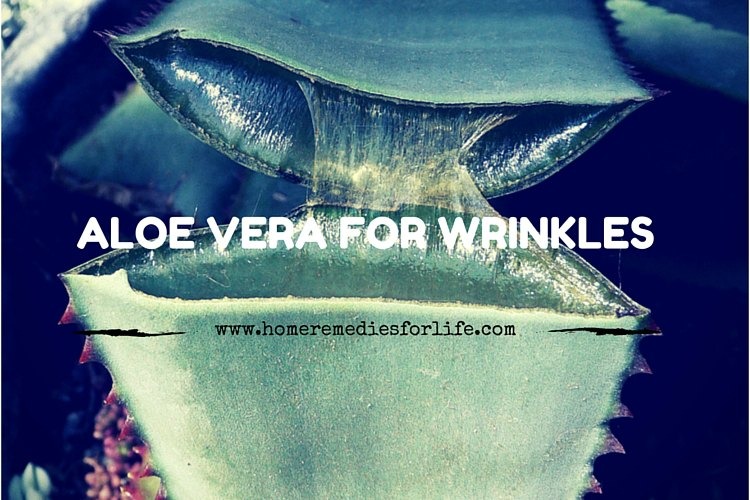
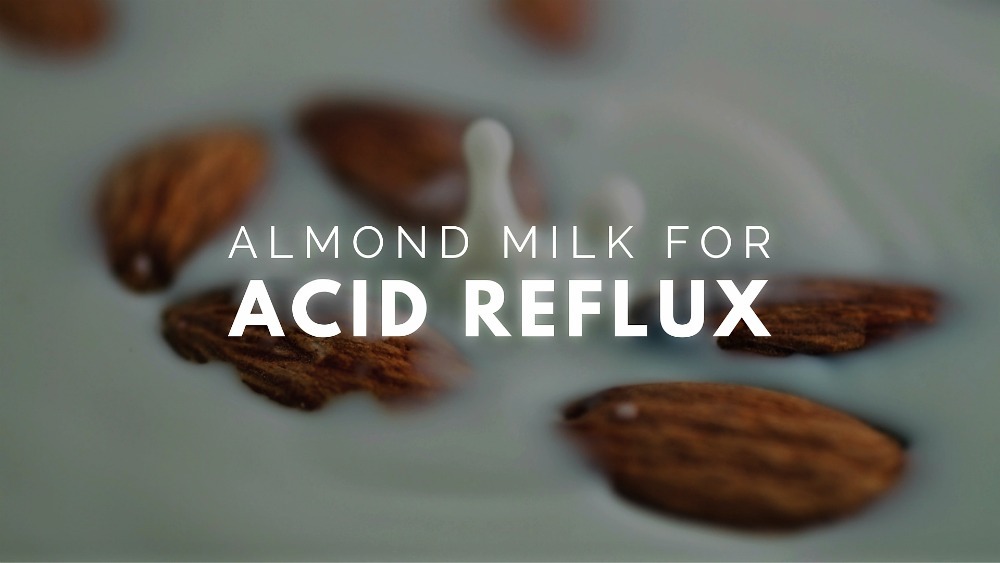
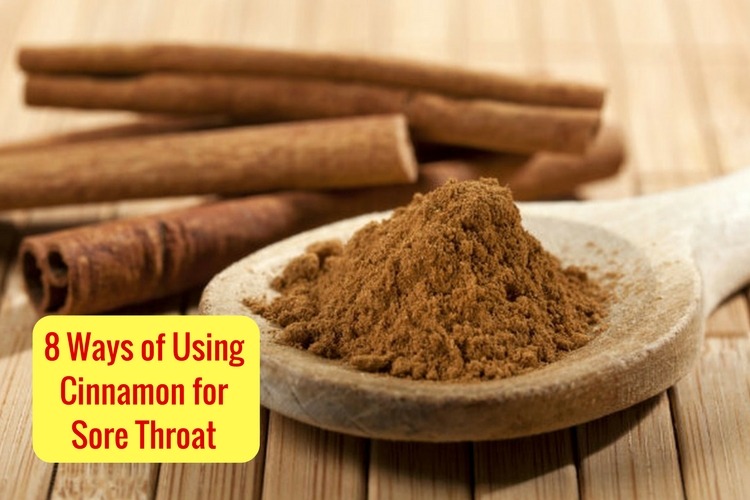

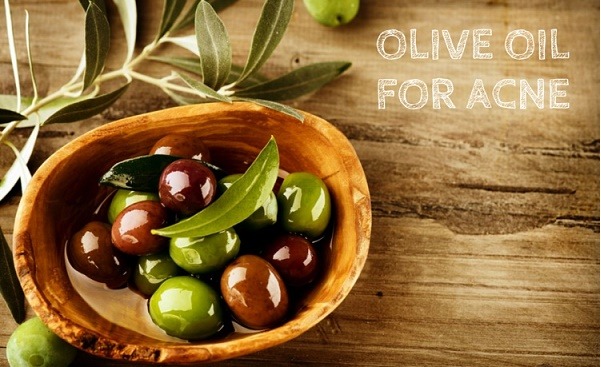




2 comments
Nuts should be avoided and nuts should be consumed?
This does not make sense
Sorry Anoy,
By mistake I have added nuts in different section.